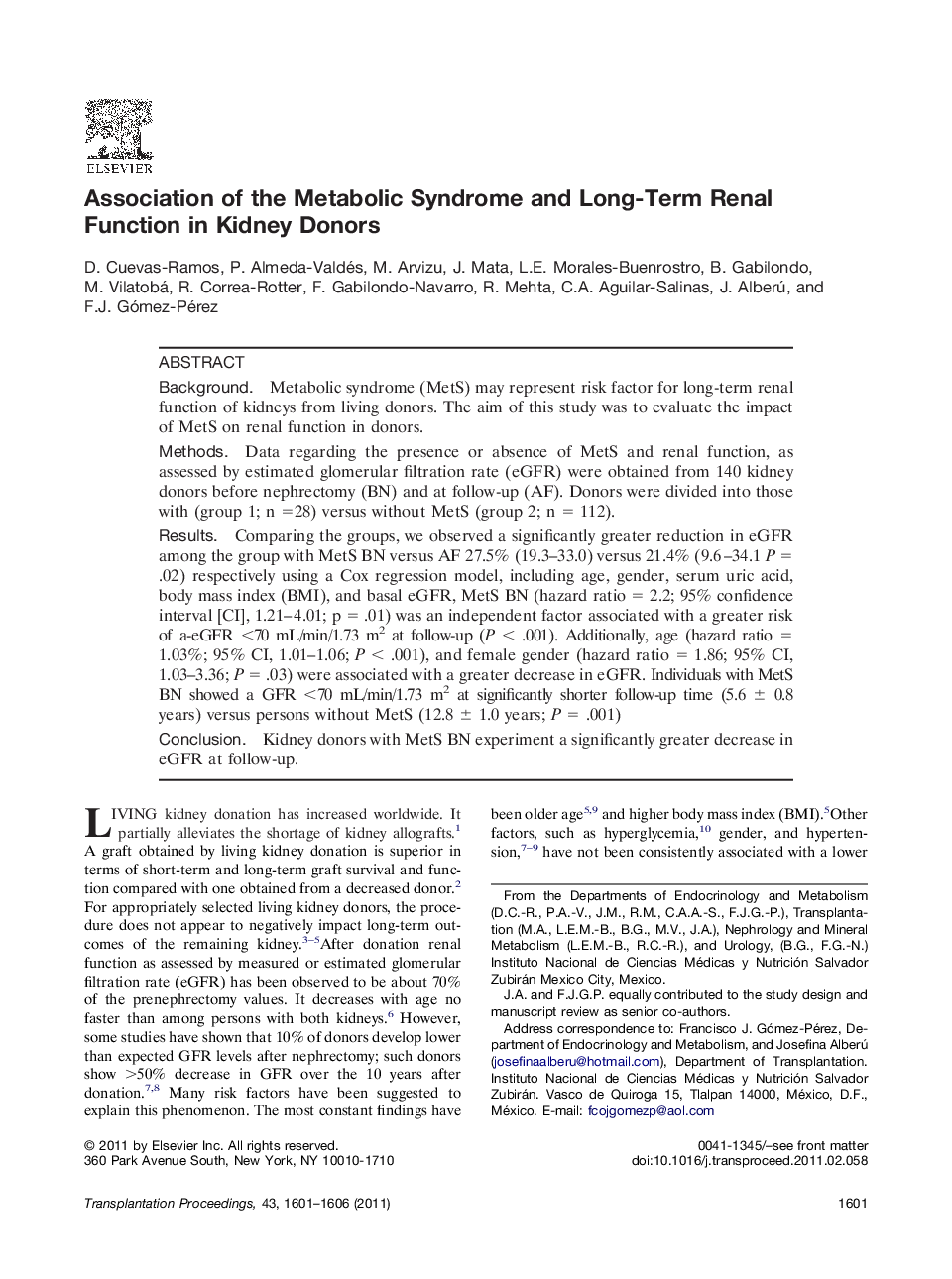| کد مقاله | کد نشریه | سال انتشار | مقاله انگلیسی | نسخه تمام متن |
|---|---|---|---|---|
| 6249213 | 1284545 | 2011 | 6 صفحه PDF | دانلود رایگان |

BackgroundMetabolic syndrome (MetS) may represent risk factor for long-term renal function of kidneys from living donors. The aim of this study was to evaluate the impact of MetS on renal function in donors.MethodsData regarding the presence or absence of MetS and renal function, as assessed by estimated glomerular filtration rate (eGFR) were obtained from 140 kidney donors before nephrectomy (BN) and at follow-up (AF). Donors were divided into those with (group 1; n =28) versus without MetS (group 2; n = 112).ResultsComparing the groups, we observed a significantly greater reduction in eGFR among the group with MetS BN versus AF 27.5% (19.3-33.0) versus 21.4% (9.6-34.1 P = .02) respectively using a Cox regression model, including age, gender, serum uric acid, body mass index (BMI), and basal eGFR, MetS BN (hazard ratio = 2.2; 95% confidence interval [CI], 1.21-4.01; p = .01) was an independent factor associated with a greater risk of a-eGFR <70 mL/min/1.73 m2 at follow-up (P < .001). Additionally, age (hazard ratio = 1.03%; 95% CI, 1.01-1.06; P < .001), and female gender (hazard ratio = 1.86; 95% CI, 1.03-3.36; P = .03) were associated with a greater decrease in eGFR. Individuals with MetS BN showed a GFR <70 mL/min/1.73 m2 at significantly shorter follow-up time (5.6 ± 0.8 years) versus persons without MetS (12.8 ± 1.0 years; P = .001)ConclusionKidney donors with MetS BN experiment a significantly greater decrease in eGFR at follow-up.
Journal: Transplantation Proceedings - Volume 43, Issue 5, June 2011, Pages 1601-1606